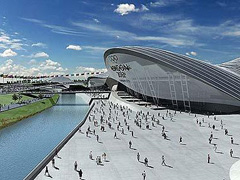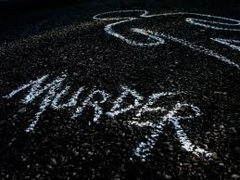


1908
London’s first opportunity to host the Olympics Games was due to a stroke of luck. Rome was initially the chosen city, however a little problem by the name of Mount Vesuvius erupted in 1906, resulting in the relocation of the event. The official story goes that all available funds had to be re-directed towards those affected by the disaster, however in fact the Italian government didn’t have the money to pay for the Games in the first place. The volcano was merely a convenient excuse.
In any case, Rome’s loss was London’s gain. King Edward VII opened the games, which were to become the best organised up until that point. In the early 20th century Britain was prosperous – the empire was still thriving and the Industrial Revolution had ensured decent revenue to host the event. A second lucky coincidence was that the Franco-British Exhibition took place the same year, for which a large stadium had been constructed in White City (which eventually fell into disuse and was demolished in 1984). This, together with Wimbledon’s tennis courts, Henley-On-Thames for rowing and Bisley for shooting, were the main locations.
Rather than cram all the sports into two packed weeks, they took place between April and October, although the official opening ceremony was in July. They were divided into the Summer and Winter Games, with outdoor events like swimming, athletics and football happening in the summer. Deer shooting was also a discipline, unimaginable today.
At the start of the Games poor weather and high ticket prices resulted in low attendance, however the ticket cost was reduced after criticism was levelled at the IOC. Over 2000 athletes participated, out of which around 40 were female, and there were 23 sports. The American Bishop of Pennsylvania, who was in town for the Olympics during Easter, gave a sermon at St. Paul’s Cathedral where he was quoted as saying that “the important thing in these Olympiads is not to win, but to take part”. Try telling that to Team GB and fans.
The UK was the most successful nation, winning a total of 146 medals, 56 of which were gold. The US and Sweden came second and third, with 47 and 25 medals respectively.
\n\n1948
Initially planned for 1944, the Games had to be postponed due to the Second World War. Condensed into a fortnight, by now the Olympic torch, oath and cauldron had become tradition (the torch relay was in fact introduced by Adolf Hitler in 1936). 59 countries took part; Germany and Japan were not invited for obvious reasons, and the USSR refused to participate.
Things couldn’t have been more different from 1908. The post-war recession meant these became known as the “Austerity Games”, as funding was low and rationing was still taking place (somewhat ironic given the vast expense of the more recent games and the current ‘Austerity Britain’ catchphrase). It wasn’t possible to build new sporting facilities, therefore Wembley Stadium was the main venue, with events taking place all over the city, from hockey in Chiswick to football in Walthamstow.
Athletes stayed at either military barracks around West London or university dorms. Whale meat was consumed in place of red meat, so unsurprisingly many teams brought their own food from overseas.
Despite, or perhaps because all of this, the Games actually made a profit of almost £30,000.
Opened by King George VI, the ceremony was suitably simple, consisting of a 21-gun salute and several speeches.
In terms of medals, the UK did not fare well compared to 1908, winning just 23, only three of which were gold, for rowing and sailing. The US and Sweden came first and second respectively.
\n\n2012
A much talked-about opening ceremony paid homage to the NHS (will David Cameron dare to cut its budget now?) and Britain’s Industrial past. Danny Boyle’s spectacle was dismissed as “lefty multicultural crap” by Tory MP Aidan Burley and praised by those who appreciated the show’s mix of entertainment and historical value.
The cost of the Games surpassed the £10 billion mark, as a new Olympic Village was constructed, complete with stadium, various arenas and homes for the athletes. A hefty sum was also spent on security, controversially including missiles perched on top of people’s homes, much to their dismay. Londoners prepared for a huge strain on public transport and unbearable crowds, however as many fled in time for the Olympics much of Central London was in fact quieter than usual, with hotels slashing prices and restaurants complaining of not having enough trade.
There was also some controversy over ticket sales, as people struggled to secure seats prior to the Games, only for the venues to be half empty for certain events. Members of the army were called in to make up the numbers.
But that is not to say the 2012 Games were not huge, as it is expected that new records will be set for attendance figures. 8 thousand people took part in the torch relay, and a total of 10,500 athletes competed. Britain’s roads were filled with bunting for months prior to the Games, and Union Jacks proudly displayed in windows ever since the Queen’s Jubilee in June. In terms of medals, the UK came third with 65; 29 gold, 17 silver and 19 bronze, spread out over sports including rowing, sailing, canoeing, athletics and cycling. The US earned the most medals with 104, closely followed by China with 88.
Olympic fans have more to look forward to - at the time of writing the Paralympics have not yet taken place, due to start on the 29th of August. This will be the first time they are held in London.


